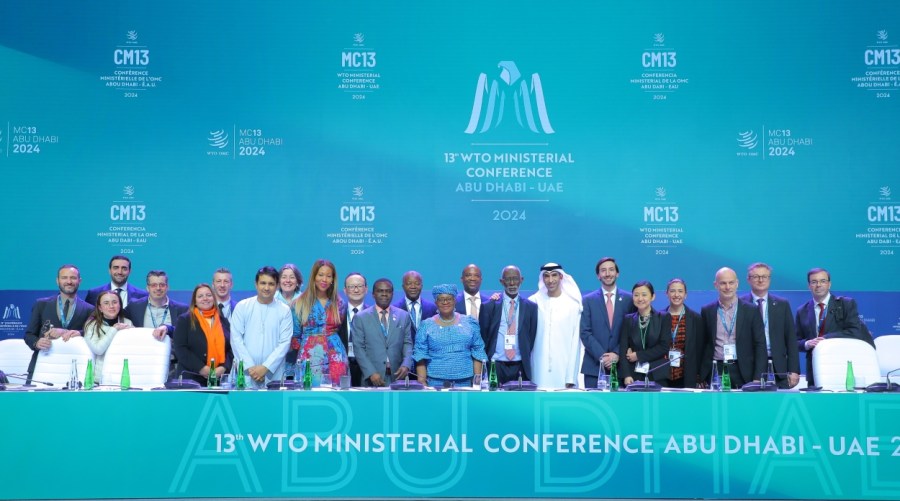Once again, the World Trade Organization’s moratorium on customs duties on digital transmissions, “the e-commerce moratorium”, a key pillar of internet development for decades, managed to outturn the worst predictions in the very last minute, leaving the two-year extension as the main significant outcome from the WTO’s 13th Ministerial Conference in Abu Dhabi.
The e-commerce moratorium has been in place since 1998 and is a crucial instrument for businesses and consumers around the world, enabling them to engage in electronic commerce and to access electronic services more cheaply and more easily. During the past months industrial organizations such as the International Chamber of Commerce (ICC) or the European Round Table for Industry (ERT), called for the ban on digital tariffs to be made permanent.
What happened with the ecommerce moratorium during MC13?
After a week of intense negotiations, WTO Members reached an agreement to renew the moratorium until MC14, maintaining duty free trade in online services, including apps, games and software, as well as digitally transmitted content such as music, video, and other digital files.
The e-commerce moratorium gives businesses and consumers around the world access to the digital economy. This way, it fosters digital transition of economies and societies and promotes digital inclusion, providing opportunity, legal certainty, and predictability to digital trade in the EU and worldwide. This also applies to companies in developing countries, SME’s in particular, facilitating access to the digital inputs and the online global markets beyond their national borders.

What is at stake?
Now, with global Internet companies having proliferated through the digital ecosystem, more countries want a share of those revenues and tariffs offer a chance to do redistribute digital prosperity, particularly for developing countries. However, it is not easy to know what digital tariffs would look like in practice.
Thus far, only Indonesia has a regulation in place that would allow the imposition of duties on digital goods, which it describes as software, electronic data and multimedia transmissions delivered via electronic transmissions. Currently, these tariffs are not applied due to tariff ban, in line with the moratorium. But as digital trade grows, more imports shift to digital delivery and developing countries consider that digital duties would help local digital industries to better compete with global techs. Maybe some countries may take it as an opportunity to put in place tariff systems to go live in 2026.
In this context, OECD analysis demonstrates that the potential fiscal revenue implications of the moratorium are small (on average, 0,68% of total customs revenue or 0,1% of total government revenue). Instead, well-designed value added, or goods and services taxes can help offset potential foregone revenue in most countries. But the extension of the moratorium becomes more than a Big Tech issue or a developed country problem, it really stands to affect the entire digital economy. It really is about the fiscal debate of the digital economy.
What comes clear is that a failure to renew the moratorium would result in greater policy uncertainty and an increase in trade barriers, and that tariffs on electronic transmissions would have an impact on domestic competitiveness. As stated by OECD, adverse effects would be most pronounced for low-income countries and SME’s.
What is certain is that, since it was launched in 1998, the Moratorium has accompanied growth on the internet justifying its renewal successively since then. The WTO’s 13th MC produced a deal to extend the moratorium until the next ministerial meeting, but, even if we must observe this with optimism, companies will be forced to confront a more extensive negotiations facing its expiration again in 2026 and that, in the coming months, relevant negotiations will take place in the context of the Joint Statement Initiative on E-commerce.









